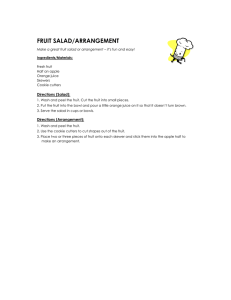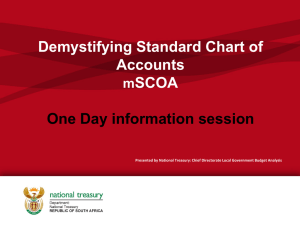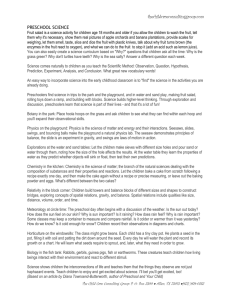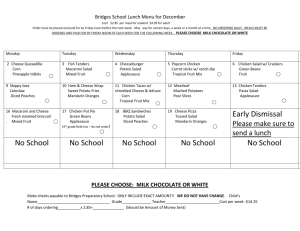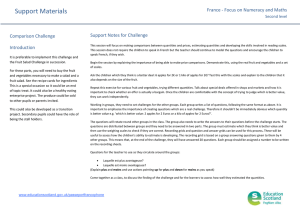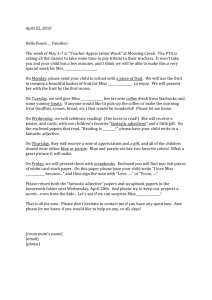Sample Discussion Agenda
advertisement
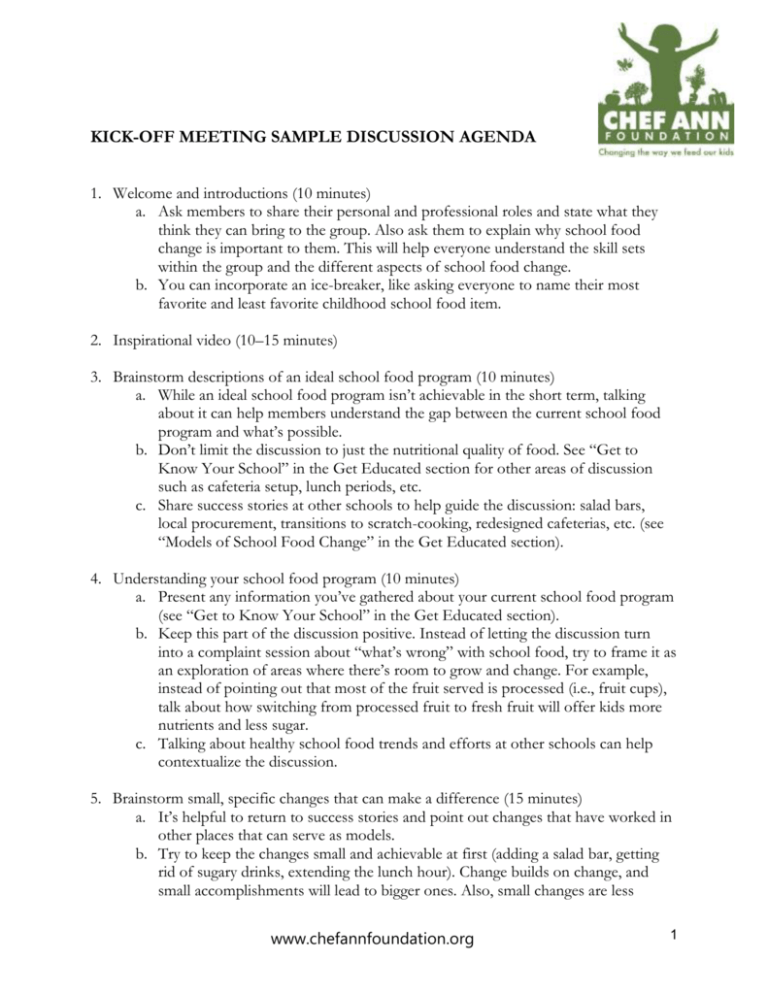
KICK-OFF MEETING SAMPLE DISCUSSION AGENDA 1. Welcome and introductions (10 minutes) a. Ask members to share their personal and professional roles and state what they think they can bring to the group. Also ask them to explain why school food change is important to them. This will help everyone understand the skill sets within the group and the different aspects of school food change. b. You can incorporate an ice-breaker, like asking everyone to name their most favorite and least favorite childhood school food item. 2. Inspirational video (10–15 minutes) 3. Brainstorm descriptions of an ideal school food program (10 minutes) a. While an ideal school food program isn’t achievable in the short term, talking about it can help members understand the gap between the current school food program and what’s possible. b. Don’t limit the discussion to just the nutritional quality of food. See “Get to Know Your School” in the Get Educated section for other areas of discussion such as cafeteria setup, lunch periods, etc. c. Share success stories at other schools to help guide the discussion: salad bars, local procurement, transitions to scratch-cooking, redesigned cafeterias, etc. (see “Models of School Food Change” in the Get Educated section). 4. Understanding your school food program (10 minutes) a. Present any information you’ve gathered about your current school food program (see “Get to Know Your School” in the Get Educated section). b. Keep this part of the discussion positive. Instead of letting the discussion turn into a complaint session about “what’s wrong” with school food, try to frame it as an exploration of areas where there’s room to grow and change. For example, instead of pointing out that most of the fruit served is processed (i.e., fruit cups), talk about how switching from processed fruit to fresh fruit will offer kids more nutrients and less sugar. c. Talking about healthy school food trends and efforts at other schools can help contextualize the discussion. 5. Brainstorm small, specific changes that can make a difference (15 minutes) a. It’s helpful to return to success stories and point out changes that have worked in other places that can serve as models. b. Try to keep the changes small and achievable at first (adding a salad bar, getting rid of sugary drinks, extending the lunch hour). Change builds on change, and small accomplishments will lead to bigger ones. Also, small changes are less www.chefannfoundation.org 1 threatening to school administration, which has budgetary and operational concerns. 6. Set the mission and decide on up to three goals for the group (15 minutes) a. Try to keep the mission to one sentence and let it be the guiding principle of your group. (Examples: “To work with school administrators to improve the nutritional quality of school food” or “To make school food change a priority in our community.”) b. Goals can be food focused or community focused, but they should be small and achievable. (Examples: “To incorporate a salad bar program into the school food program” or “To raise awareness in our community about the importance of school nutrition.”) 7. Determine next steps (15 minutes) a. What are the first steps that you need to take to accomplish your goals? Some common steps include: i. Solidifying your group’s understanding of your current school food operations (see item 4). Gather information to fill any gaps in your knowledge. ii. Reaching out to other school districts to determine how they made their changes. You can refer to the model schools and case studies in the Get Educated section. iii. Establishing a strategy and benchmarks for achieving your goals. iv. Reaching out to administration to let them know what your group is working on. b. See Take Action section for other ways to make progress toward your goals. c. Assign tasks. Everyone in the group should walk away with an action or task to complete before the next meeting, even if it’s a logistical assignment like setting up the next meeting or distributing notes. d. Set a date for the next meeting. www.chefannfoundation.org 2


